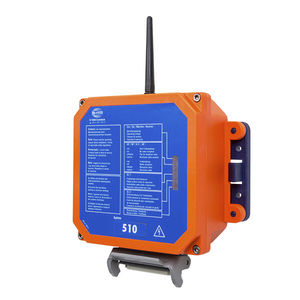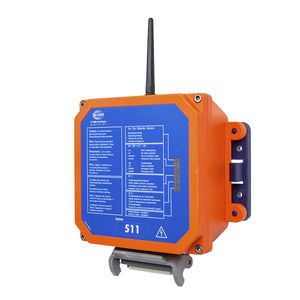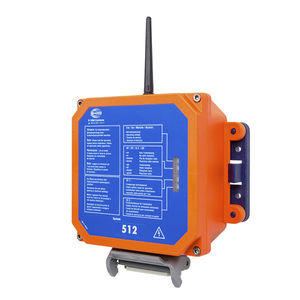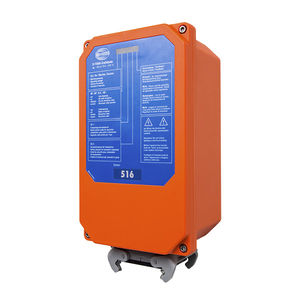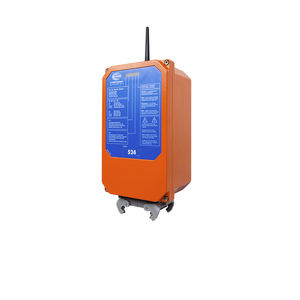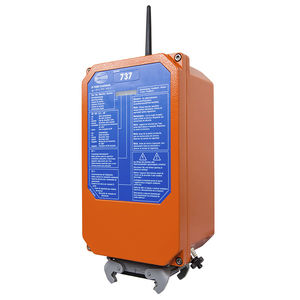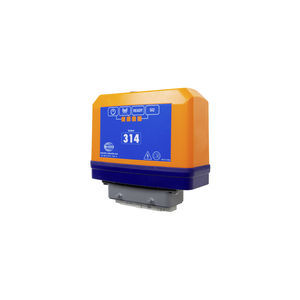
Digital receiver FSE 507analogfor radio remote controlrugged
Add to favorites
Compare this product
Characteristics
- Type
- digital, analog
- Applications
- for radio remote control
- Other characteristics
- rugged, with integrated antenna, IP65, 2.4 GHz
Description
The tough radio receiver for the control of mobile applications. Perfect for cranes and machinery with up to 6 analog drives.
Adaptive Frequency Hopping
HBC's advanced fully automatic frequency management comes standard with all our 2.4 GHz radio systems.
Your advantages:
A manual frequency coordination with other radio users is not necessary.
The operator can work without interruption, even in areas with many radio users. This saves valuable time.
This technology is approved almost worldwide, which makes warehousing much easier: instead of different country-specific high frequency modules, in most cases, just a single 2.4 GHz module can be used.
In countries where HBC radio systems are approved, the 2.4 GHz technology is available without registration or license fees. This saves costs and effort.
How it works:
Frequency management is already included in the radio system and works automatically.
Catalogs
Radio controls for mining
37 Pages
Related Searches
- HBC-radiomatic industrial remote control
- HBC-radiomatic wireless remote control
- HBC-radiomatic remote control with buttons
- HBC-radiomatic IP65 remote control
- HBC-radiomatic crane remote control
- HBC-radiomatic on/off remote control
- HBC-radiomatic joystick remote control
- Rugged remote control
- Compact receiver
- HBC-radiomatic compact remote control
- Safety remote control
- HBC-radiomatic serial receiver
- HBC-radiomatic rechargeable remote control
- HBC-radiomatic lithium remote control
- HBC-radiomatic remote control receiver
- Rugged receiver
- HBC-radiomatic corded remote control
- HBC-radiomatic industrial receiver
- Wireless receiver
- HBC-radiomatic lifting equipment remote control
*Prices are pre-tax. They exclude delivery charges and customs duties and do not include additional charges for installation or activation options. Prices are indicative only and may vary by country, with changes to the cost of raw materials and exchange rates.







